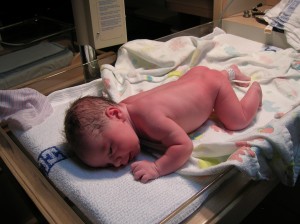

The Oct 9th issue of New Scientist had an article titled “Eating Skippy?” written by a now, former vegetarian about the merits of eating the flesh of Kangaroos.
I like to think of former vegetarians (and vegans) more as “born-again meat eaters”. Like some born-again Christians, they often hang onto a pile of partly-understood rationalizations for what they are doing, believe they have discovered absolute truth, and won’t shut up.
Fortunately the author of this article doesn’t seem to be one of these. Her article seems to be pretty compelling, but in the end it shows that if you do something for the wrong reason, it won’t stick.
There are a number of reasons one might become vegan: for health benefits, for reducing environmental impacts, to imitate a celebrity (that’s what PETA counts on), for animal welfare or for animal rights. The problem is that all reasons except the last one are arguable, and only a few rationalizations from vanishing.
The article does show that Kangaroos consume less water and food and produce fewer greenhouse gasses than other animals. Oops! there goes the environmental arguments. She also shows that flesh is more healthy than that of other animals. There goes the health reasons.
Kangaroos are very easily stressed, and that stress ruins the taste of their flesh. Therefore they can’t be confined and must be free-range; they can only be hunted in the most stealthy manner, which means they know nothing of their fate until the moment the bullet enters their skull. And there goes the animal welfare reasons.
The article does mention “animal rights” at a few points, but, as is so often the case, it ends up confused with “animal welfare”. Here are the two mentions of “animal rights”: “Many animal rights groups remain opposed to kangaroo harvesting, saying it is cruel…” and “Animal rights groups, such as Australia’s Voiceless, say any orphaned young at foot will starve to death.” This shows that most groups which use the phrase “animal rights” are really welfarist groups. And, while I don’t know if the author intended this, these statements are strawmem: by using the phrase “animal rights” but then bringing up welfare concerns, which are easily dealt with (q.v.), the implication is that the animal rights concerns can be dismissed.
But the animal rights argument is straightforward: Kangaroos are sentient beings and we have no right to kill them. But that wouldn’t fill four pages of a magazine, now would it?
 The world got one more vegan yesterday (5-Nov-08) at 6:14pm when Madeleine Helen Marie Fisher was brought into this world. She was 7 lbs 1 oz and 20 inches long. As can be seen in this picture she quite liked laying on her front with her butt up in the air. Contractions began just after Obama’s acceptance speech, so obviously she was waiting for that before gracing us with her presence.
The world got one more vegan yesterday (5-Nov-08) at 6:14pm when Madeleine Helen Marie Fisher was brought into this world. She was 7 lbs 1 oz and 20 inches long. As can be seen in this picture she quite liked laying on her front with her butt up in the air. Contractions began just after Obama’s acceptance speech, so obviously she was waiting for that before gracing us with her presence.
Both mother and daughter are doing well.
When I read Omnivore’s Dilemma the first thing that struck me was their use of the word “symbiosis”. I grew up on a farm, and I took care of the chickens, and I started thinking about “symbiosis”. Symbiosis implies that when the two creatures interact, they both benefit from the relationship. But for anyone involved in animal agriculture to use this word is simply a whitewashing to hide what really happens, or a way for them to assuage their conscience.
For example, the relationship between the dairy cow and the farmer is nothing short of parasitism. The cow’s life is greatly shortened, she has to live in filthy conditions, she is repeatedly impregnated and then has her babies taken away from her (and so-called free-range cows only gets the second condition mitigated). The only benefits the cow receives only serve to keep her alive to produce milk. Any meat-based agriculture is strictly parasitic as the animals are brought into existence for the sole purpose of being killed, after an exceeding brief and brutal life. I see no benefit for the animal.
However, based on my experience, I do think it is possible for humans and chickens to be in a symbiotic relationship. I think I was near this situation with my chickens. My chickens had about half an acre of pasture to roam freely in, they had a clean coop, fresh straw in their nest boxes, they always had fresh feed and water, and I never killed any of them. I would collect their eggs, but, unlike dairy cows, chickens will lay eggs fairly regularly whether they are breeding or not. Of course, in this exchange I took away their reproductive freedom, but every other freedom was accorded them and they lived out their full, natural lives. In my opinion, that fits the definition of “symbiosis,” anything less is parasitism.
The comments that followed the blog entry were largely filled with ignorance and intolerance, in accordance with internet traditions. But my favorite was this astounding display of all-out ignorance:
_[…] if we all become strict vegans, where’s all the food going to come from?
Obviously this person believes that the animals live on air. Animal agriculture consumes at least half of the U.S. grain production. That’s enough grain to feed 800 million people (see this), compare that to the 10.4 million children who die each year of malnutrition. How does that steak taste now?